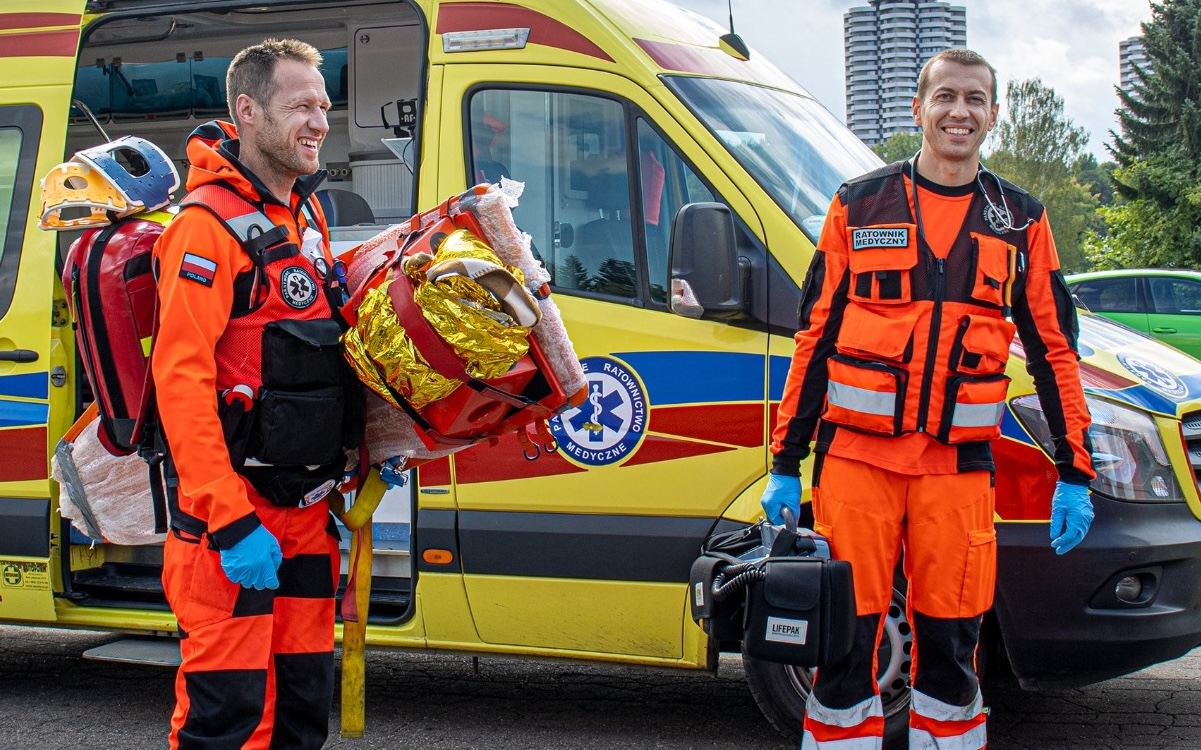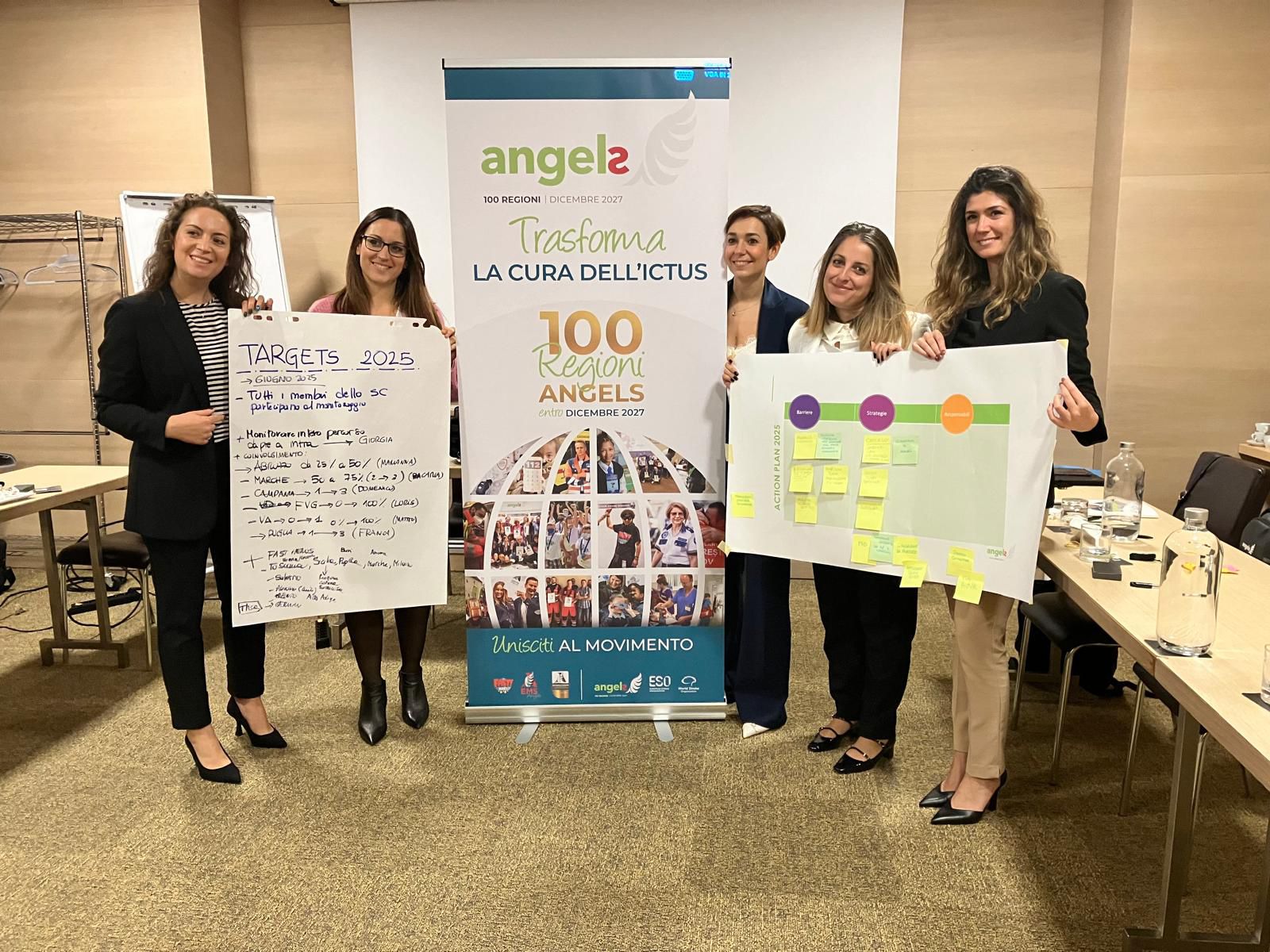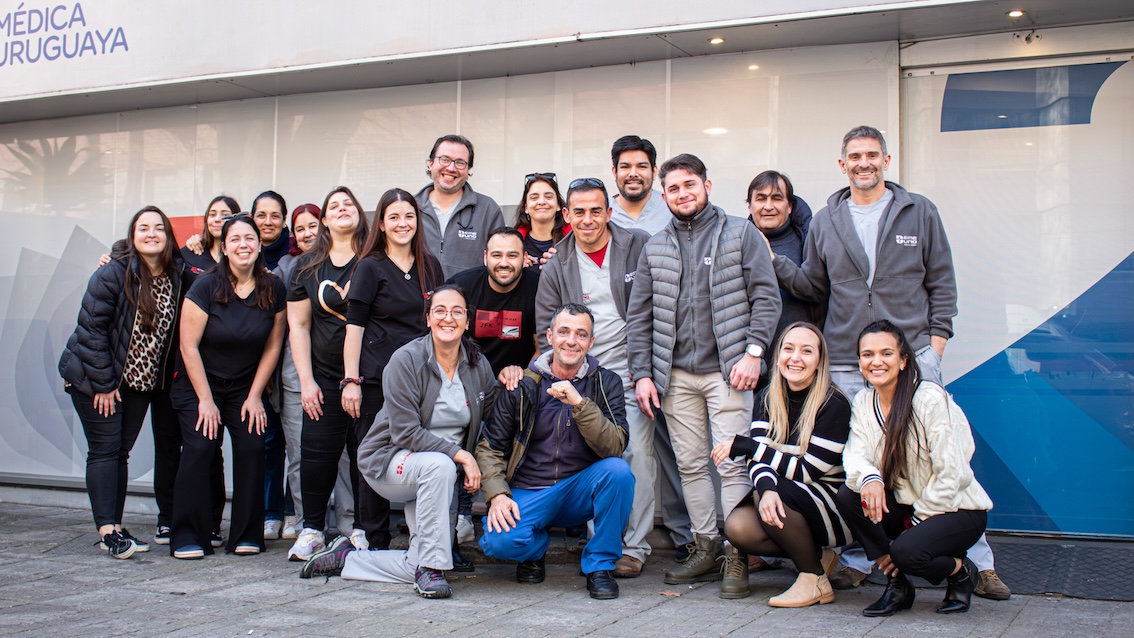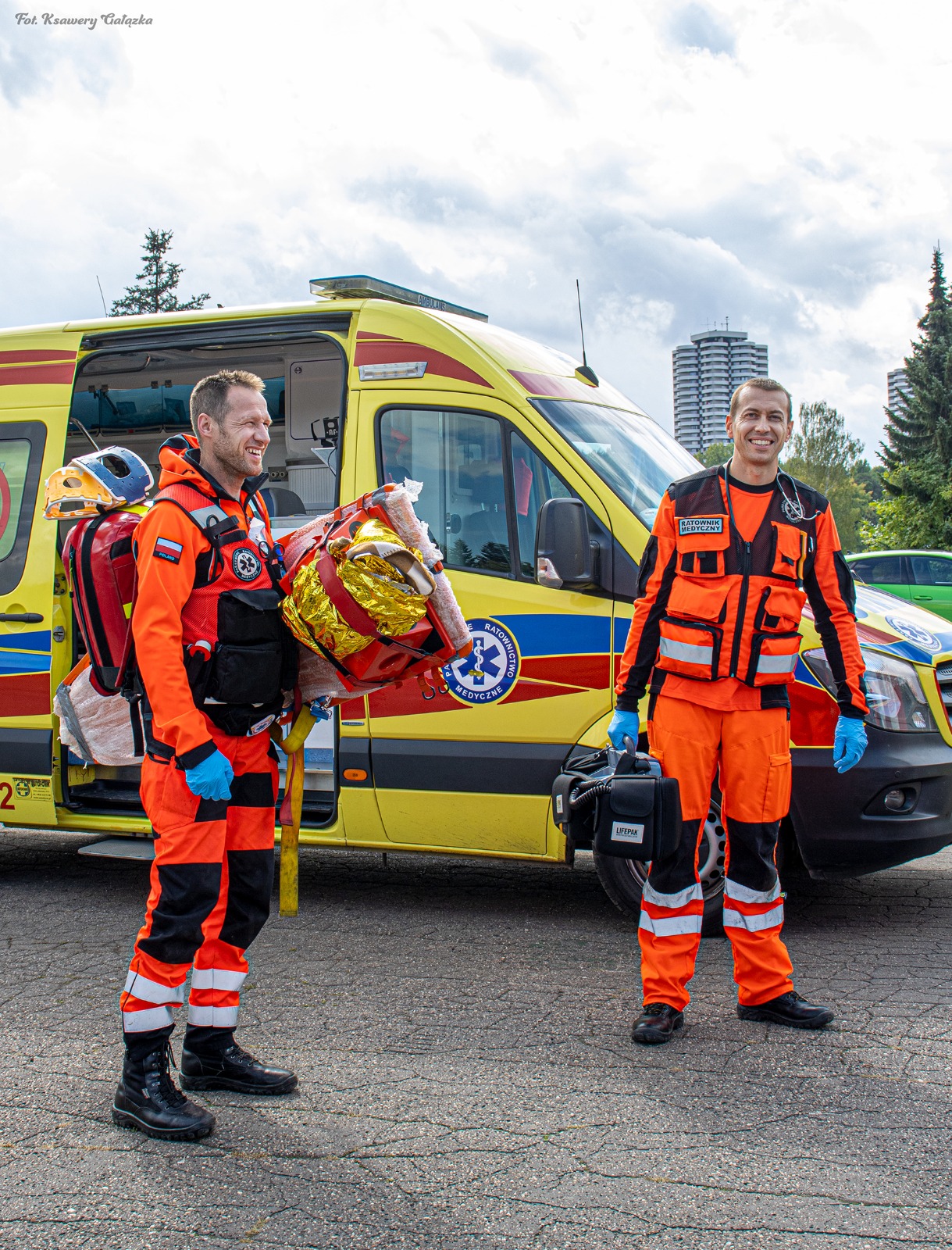
Câu chuyện này bắt đầu vào tháng 4 năm 2022 tại tỉnh Podkarpackie của Ba Lan, trước hai ngày đào tạo chuyên sâu cho các thành viên EMS. Việc đào tạo là bước đầu tiên để giải quyết sự chậm trễ trong điều trị tại các bệnh viện trong khu vực, cuộc họp trước đó đã đặt tại cửa dịch vụ xe cứu thương. Nhân viên cấp cứu trong tỉnh được cho là thiếu khả năng chẩn đoán đột quỵ ngoại trừ trong những trường hợp rõ ràng nhất; và việc sử dụng thang đánh giá thần kinh và thông báo trước viện không nhất quán ở mức tốt nhất.
Làm việc trên linh cảm, nhà tư vấn của Angels, Katarzyna Putyło thực hiện hàng chục cuộc gọi đến các số điện thoại được cung cấp để thông báo trước viện. Trong phần lớn các trường hợp, các cuộc gọi của cô không được trả lời. Khi 60 thành viên EMS đến thủ phủ tỉnhRzeszów để đào tạo, Kasia đã có một danh sách cập nhật và xác minh các số điện thoại được in trên đủ nhãn dán cho mỗi xe cứu thương trong tỉnh. Nhãn dán không chỉ là một công cụ thông báo trước viện: nó cũng là một yếu tố kích hoạt hành động cứu mạng sống.
Nhãn dán biến chúng ta thành một thứ nhỏ bé tạo nên sự khác biệt lớn. Các bệnh viện không chỉ bắt đầu báo cáo thời gian điều trị tốt hơn, mà vào Q3 năm 2022, Wojewódzka Stacja Pogotowia Ratunkowego w Rzeszowie trở thành EMS đầu tiên trong tỉnh giành được giải thưởng bạch kim.
Thay đổi sinh ra thay đổi, và đến đầu năm 2023, dịch vụ xe cứu thương Rzeszów đã chuyển đổi bạch kim thành giải thưởng kim cương. Vào tháng 11, hai nhân viên y tế từ đơn vị này tham gia khóa đào tạo Nâng cao Hỗ trợ Cuộc sống Đột quỵ (ASLS) đầu tiên ở Ba Lan. Từ sự kiện này, hai điểm sáng xuất hiện sẽ viết lại câu chuyện về chăm sóc đột quỵ trước khi nhập viện ởPodkarpackie.
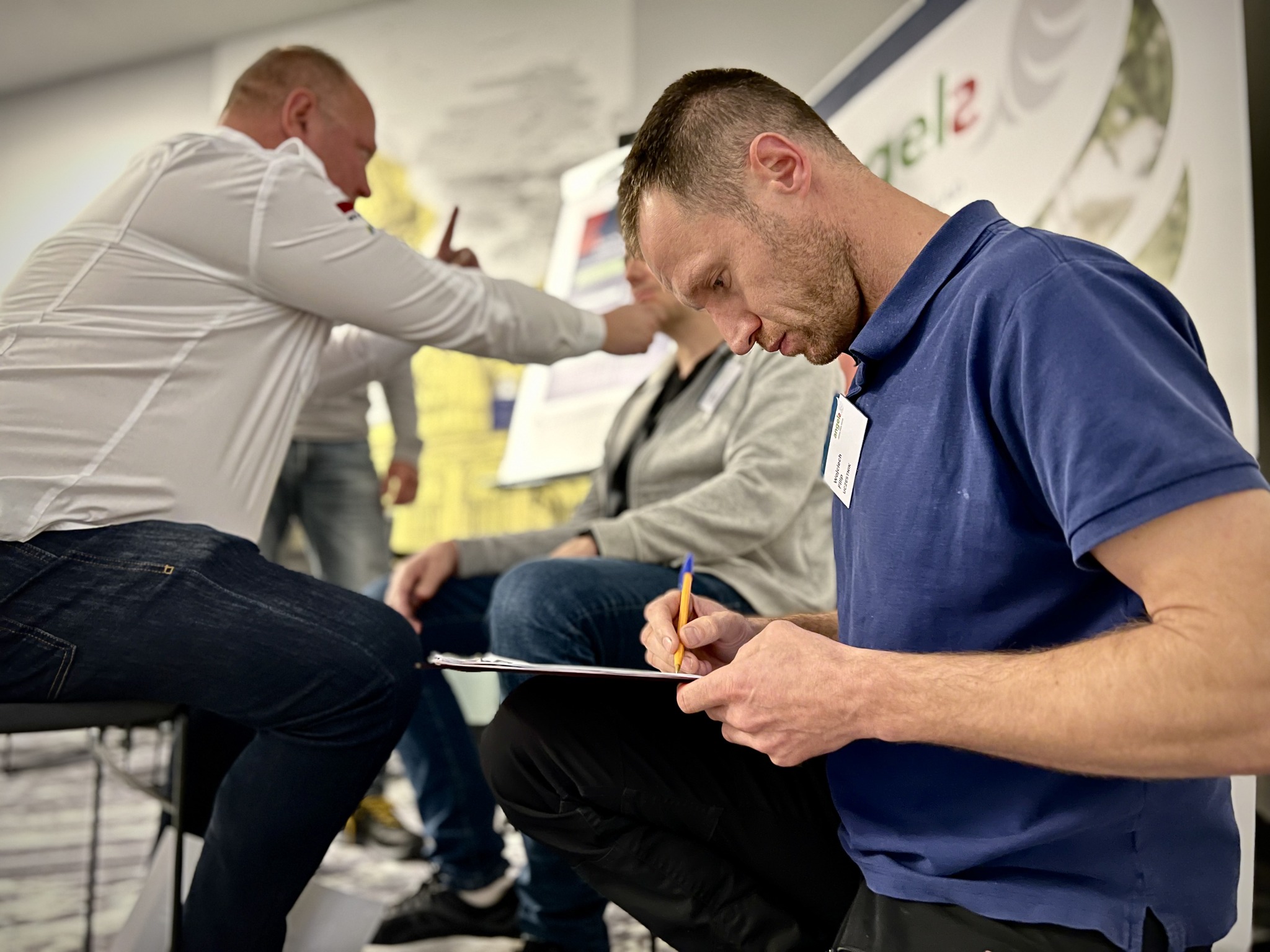
Podkarpackie Phần 2: Máy dò kim loại cho đột quỵ
Wojciech Filip vàMarcin Warchoł của dịch vụ xe cứu thươngRzeszów đã tham gia khóa đào tạo ASLS và trở nên tràn đầy năng lượng. Họ đã bị ấn tượng bởi đột quỵ phức tạp như thế nào và quan tâm đến việc khám phá kỹ lưỡng hơn các triệu chứng. Và họ đặc biệt ấn tượng với thang MEND và tiềm năng phát hiện cả đột quỵ tuần hoàn trước và sau, cũng như xác định bệnh nhân bị tắc mạch máu lớn.
Wojciech vàMarcin bị thuyết phục rằng sử dụng thang đo FAST để chẩn đoán đột quỵ là không đủ vì các triệu chứng của đột quỵ thân não và tiểu não có thể dễ dàng bị bỏ qua. Họ bắt đầu triển khai thang đo MEND trong công việc của mình để phát hiện các trường hợp đột quỵ ít rõ ràng hơn. Chẳng bao lâu sau, họ đã có một số trường hợp cho thấy rằng nó có hiệu quả.
Một bệnh nhân ở độ tuổi sáu mươi đã được gia đình tìm thấy trên sàn nhà, người này biết rằng cô bị bệnh tiểu đường, đã đo mức đường huyết của mình. Kết quả là nguy hiểm400 mg/dL, họ ngay lập tức liên hệ với dịch vụ xe cứu thương của Rzeszów.
Nghi ngờ của đội cứu thương đã được nêu lên khi người thân của bệnh nhân báo cáo rằng cô ấy "khác" theo cách nào đó mặc dù cô ấy tiếp tục khẳng định không có gì sai. Trong vòng ba phút, xét nghiệm MEND cho thấy thiếu hụt sức mạnh ở chi trái và kết luận chính xác rằng bệnh nhân bị đột quỵ.
Vào một dịp khác, họ được gọi đến gặp một bệnh nhân báo cáo buồn nôn và nôn mửa. Bệnh nhân khăng khăng không có gì ngoài việc bị ngộ độc thực phẩm, đó là kết quả không may của một bữa tối với thịt nướng. Nhưng xét nghiệm từ ngón tay đến mũi trong thang MEND đã xác nhận run chủ ý, đó là kết quả của rối loạn chức năng tiểu não.
“Tôi thường gặp những bệnh nhân bị TIA trước khi bị đột quỵ và số liệu thống kê là không thương tiếc”, Wojciech Filip nói. “Quá nhiều bệnh nhân thoát khỏi chúng tôi qua chiếc sàng chẩn đoán này. Đối với tôi, làm việc trong các dịch vụ y tế khẩn cấp giống như đi săn kho báu bằng máy dò kim loại. Để không tìm kiếm vô mục đích, bạn cần có một công cụ. Thang MEND đối với tôi giống như máy dò kim loại này. Đó là một công cụ. Xét nghiệm chỉ mất vài phút, nhưng đối với bệnh nhân, đó là phần đời còn lại của họ.”
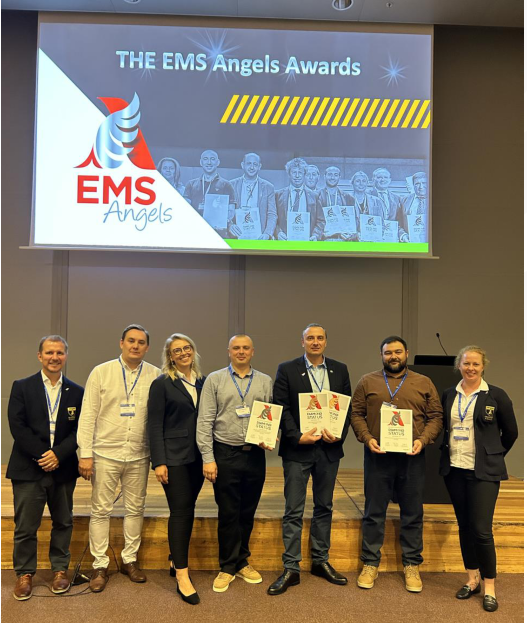
Wojciech đã là người cứu hộ trong 20 năm. Vào năm 2022, anh là một trong ba người cứu hộ đã giành chiến thắng đầu tiên trong Giải vô địch Y tế Khẩn cấp Mùa đông Quốc tế tại Bielsko-Biała.
Ông cho biết ông muốn những bệnh nhân đột quỵ nghi ngờ được điều trị giống như những người bị nghi ngờ nhồi máu cơ tim.
“Hầu như mọi bệnh nhân bị đau ngực đều đến bệnh viện để chẩn đoán. Tôi muốn điều tương tự cũng xảy ra với những bệnh nhân có các triệu chứng gợi ý nhồi máu não.”
Marcin Warchoł đã trở thành người cứu hộ khi việc vào nhà thuốc không thành công. “Hóa ra, kế hoạch B là điều khiến tôi hào hứng và không kém phần hồi hộp sau gần 16 năm. Điều thú vị về nghề này là sự cần thiết phải phát triển liên tục, sự thiếu nhàm chán và trên hết là con người. Không chỉ bệnh nhân mà cả những người cứu hộ, bác sĩ và y tá khác. Bạn có thể học được điều gì đó thú vị từ mỗi bác sĩ mà bạn gặp.”
Anh càng học được nhiều về đột quỵ,Marcin càng nhận thức được nhiều điều cần biết. “Và sau đó Angels bước vào hiện trường. Điều này cho phép tôi mở rộng kiến thức về nhiều khía cạnh của đột quỵ và chia sẻ kiến thức và kinh nghiệm với những người cứu hộ khác.”
Marcin là phó giám đốc của Tổ chức Đào tạo tại Trường Cứu hộ của trạm xe cứu thương Rzeszów, và đầu năm nay, anh và Wojciech đã dẫn đầu trong một sáng kiến để thực hiện quy mô MEND trong toàn bộ dịch vụ Rzeszów.
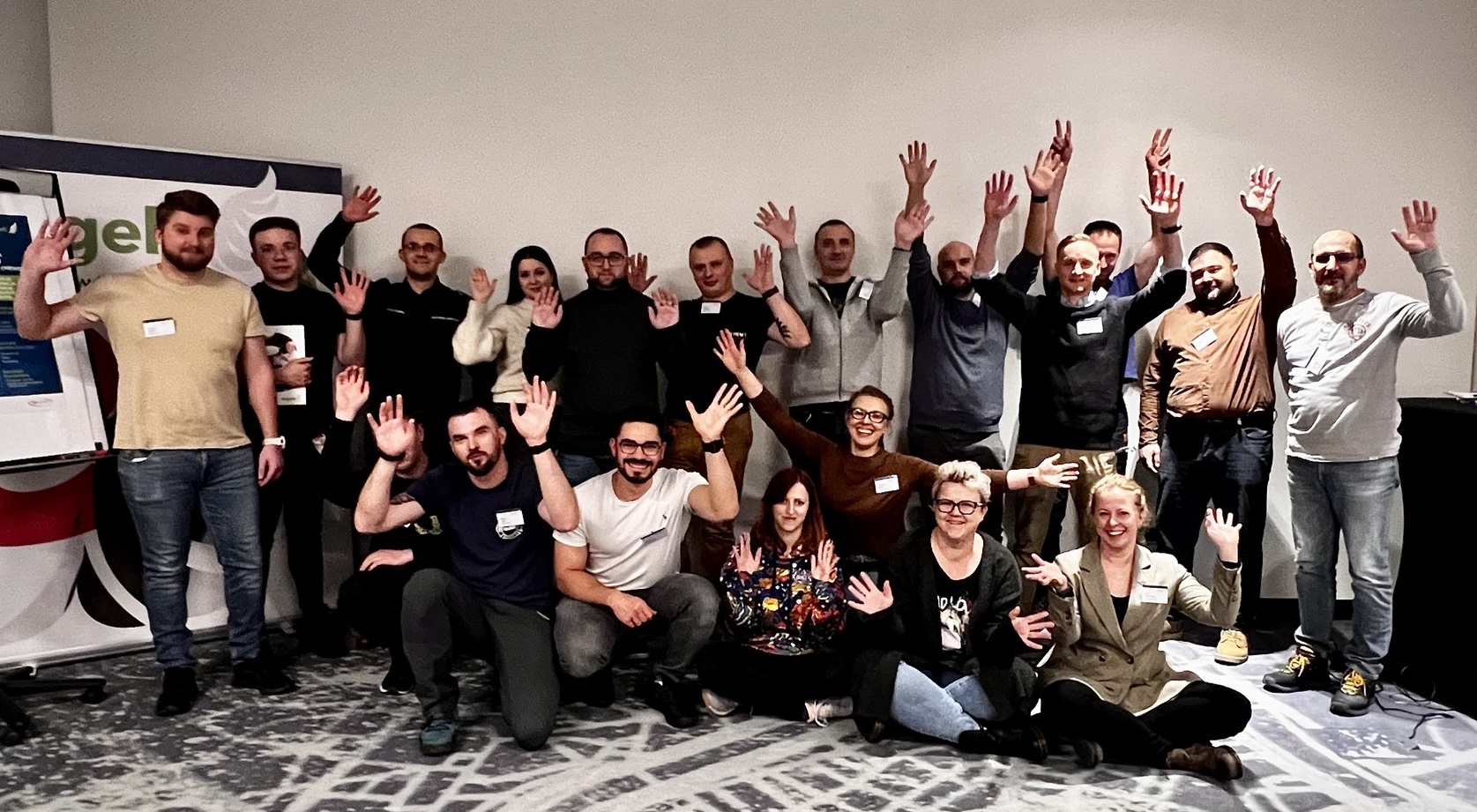
Podkarpackie Phần 3: Không hoàn toàn là một nhãn dán
Wojciech vàMarcin chịu trách nhiệm về toàn bộ chương trình, Katarzyna nói về sự kiện đào tạo vào cuối tháng Hai. “Họ đã đi sâu vào các triệu chứng đột quỵ, giới thiệu thang điểm MEND, trình bày các trường hợp của họ và dẫn dắt một hội thảo thực tế để mọi người có thể thử. Một bác sĩ từ trung tâm cắt bỏ huyết khối cũng đã tham dự, vì vậy trung tâm đột quỵ lớn nhất trong khu vực đã nhận thức được sự thay đổi trong phác đồ và mọi người rất dễ tiếp thu một công cụ mới đang được sử dụng.”
Kết quả của khóa đào tạo và thảo luận sau đó là sự kết hợp của thang điểm MEND, danh sách kiểm tra Angels trước khi nhập viện và các tiêu chí cho Giải thưởng Angels EMS.
“Danh sách kiểm tra tiền túi” này, Kasia nói, “sẽ đảm bảo rằng họ không bỏ lỡ hoặc quên bất cứ điều gì, và thang điểm KẾT THÚC cho phép họ tìm hiểu sâu hơn trong các trường hợp chẩn đoán không rõ ràng.”
Đó không chính xác là một nhãn dán, cô nói về danh sách kiểm tra dán nhiều lớp đang được phổ biến đến các nhân viên y tế trong khu vực. Nhưng giống như số điện thoại có thông báo trước viện, đây sẽ là một công cụ và là yếu tố kích hoạt bên trong mỗi xe cứu thương.
